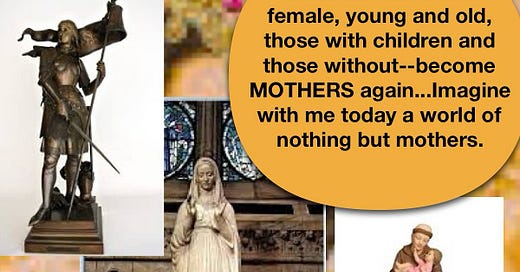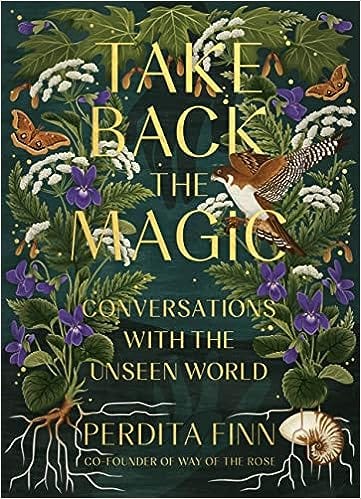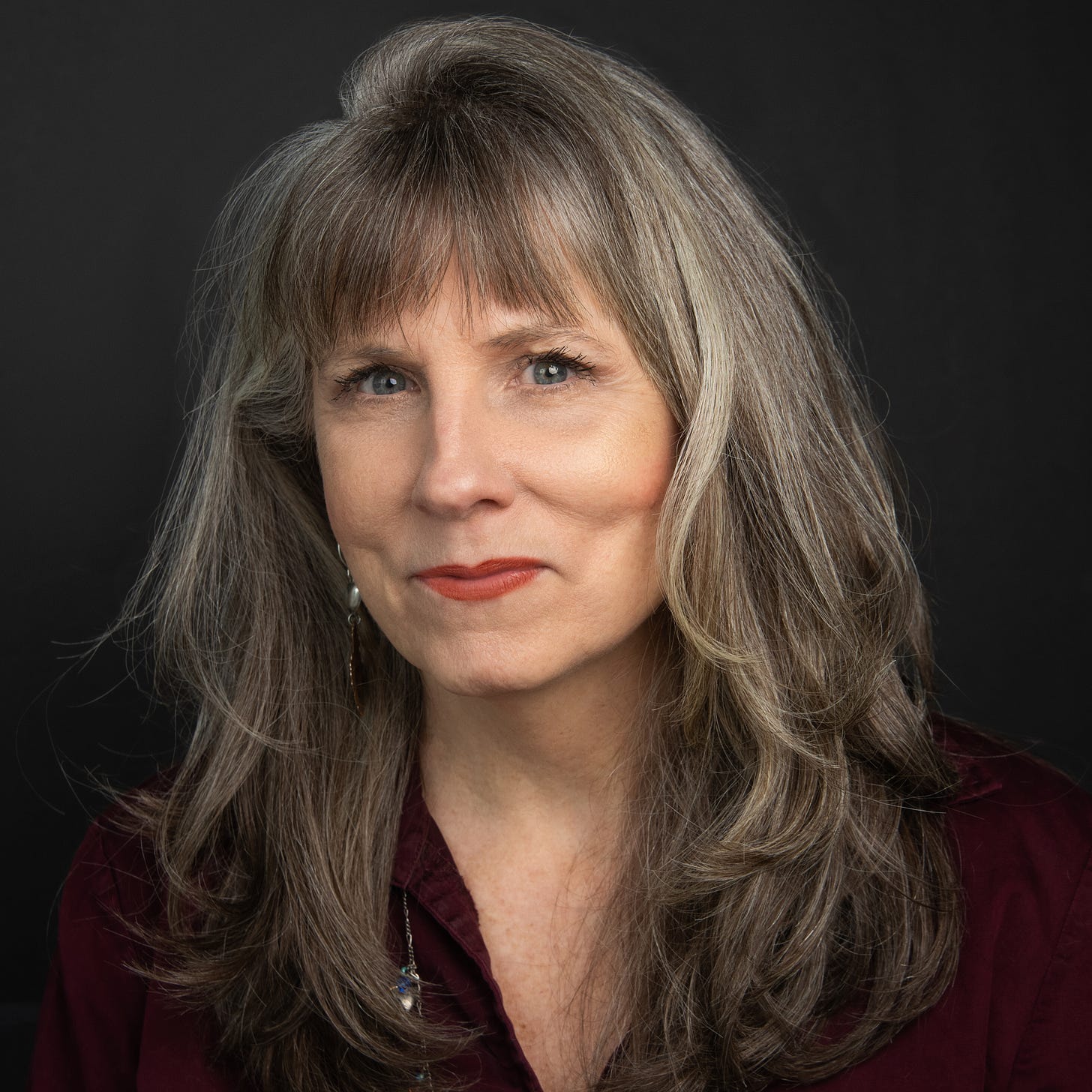When I was traveling in France, I noticed that in many small churches the statue of the Virgin Mary was often flanked by two other figures. On one side of the Lady would be Joan of Arc in full armor brandishing her sword and on the other would be Saint Anthony in his monk’s robes cradling the infant in his arms. Without even knowing it, people had created a shrine to the Holy Mother that implicitly acknowledged how many different ways there are to show up in the world maternally. A woman could be a warrior who was a mother and a mother could be a mystic who was a man. Neither Joan nor Anthony had biological children—but for centuries people around the world have turned to them in their hour of need for care and wisdom, guidance and love. They have turned to them as children seeking their mothers.
Mothers know that it takes many hands to raise a child. No wonder Kuan Yin, the goddess of compassion, has a thousand arms. One of those hands is there to smooth a furrowed brow and still another to hand us our armor before we head into battle. One hand guides our weaving and another braids our hair. Follow the folklore back in any culture around the world and we find ourselves not ruled by a singular deity but circled by a pantheon of mothers. Among many ancient peoples the number nine, the magical number of human pregnancy, was holy and sacred—there were nine muses in Greece, nine Icelandic goddesses, the blessed ennead of the Egyptians, the nine expressions of the Hindu goddess Durga, the nine original mothers of the Kogi people of Columbia.
These mothers, so many mothers, circle us with protection.
But we live in times where the mothers have been isolated, marginalized, vilified, and silenced. Being an actual mother has never been more narrowly defined. Only when I became a mother myself did I begin to understand how trapped I felt, how vast my own need for mothering really was—and how incapable a single person was of offering their children all that they demanded, all that they deserved. Out of my own longing and necessity I began a decades-long investigation into what it really meant to be a mother.
What had it been like to be a mother before systems of domination defined our gender roles? What was it really like, through the ages, to be a mother within these oppressive religious and cultural institutions? How might changing our understanding of what it means to become a mother change the world itself?
My wild dream is a world where men envision themselves as mothers as surely as St. Anthony, where women feel liberated from oppressive gender roles as boldly as St. Joan, where each of us can join hands with the Blessed Mother, with the many mothers of all religions and traditions, to cradle and care for the very life force of this planet.
Perdita Finn is the author of Take Back the Magic: Conversations with the Unseen World and the forthcoming Mother Magic: Recovering the Love at the Heart of the World. With her husband Clark Strand she is the founder of The Way of the Rose and the co-author of the book of the same name.
She teaches popular workshops on collaborating with the other side. She’ll be teaching online with the Shift Network this summer (Holy Helpers: How an Ancestral Team Can Transform Our Lives), in person (at last!) at Omega in August (Ancestral Magic) and at Kripalu in November (Mother Magic.) She’ll be offering a full slate of online workshops in 2026.







I remember way back when I saw the movie Tarzan, in the last scene, Jane had just given birth. The whole village is there to welcome the baby and support the new family and celebrate new life. I literally broke down and wept, knowing this is how it is meant to be, the whole village was mother, sister, uncle, friend, father, auntie, brother. They were all in it together. All mothers to that child.
The sorrow and grief welled up unexpectedly. This was what I missed, mothering my child.
My child is grown now. I won’t have human grandchildren. It is not what she wants, however, she mothers cats, succulents, mushrooms, fish, ferns….
Of course, the tough thing is that, often, as young mothers, we don't have family or community around us to help out. I can remember my son getting on my last nerve and calling my mother, who lived 2 hours away and saying, "If you ever want to see your grandson alive again, you'd better come get him for a few days before I kill him." Fortunately, she would drive to Houston and pick him up within a day or so. Just knowing that I was fixing to get some relief made things easier for me. I honestly don't know how single mothers with more than one child can manage without losing their mind. After Christopher grew up and left home, I was available to my friends with child care who might be on the verge of insanity because I knew how overwhelmed mothers can be.
There was just a program on NPR an hour ago about mental health and young mothers, and how some have a hard time asking for help for fear of appearing to be a failure. Not me.